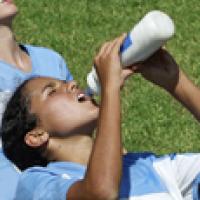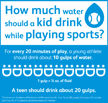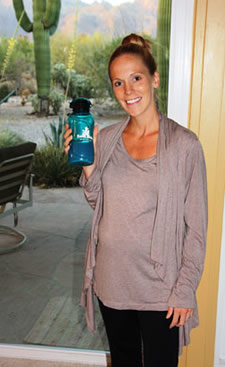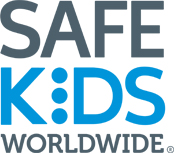A Toast to Water: Why, When and How Much Young Athletes Need It

Before I begin this blog, I have a confession to make: When I was younger, I was never good about drinking water. I’m not proud of it, but it’s true.
I played basketball in high school and went on to play in college. I was often thirsty, especially after an intense workout, but still didn’t take the time to drink water. It wasn’t something my coaches talked about, so I never thought much about it.
It makes perfect sense that my job now includes teaching kids, coaches and parents about the importance of staying hydrated.
We all know that water is essential to everything we do. It fuels muscles, improves skin and brain health, assists with digestion and helps ward off sickness. But what many people, especially young athletes, don’t consider is that water can also help improve athletic performance.
Did you also know that kids are at a higher risk for dehydration and heat illness compared to adults? I sure didn’t and looking back now, I wonder how much better of an athlete I could have been. The reality is that children have a lower sweating capacity and produce more heat during physical activity than adults, which makes them more prone to dehydration.
That risk increases on a hot or humid day, especially for kids in poor physical shape or kids participating in organized sports with multiple, intense workouts. The heat and lack of water can create a perfect storm, leading to muscle cramps, heat exhaustion, or heatstroke. At best, this can keep you from performing at your peak level. At worst, it can be more serious and warrant emergency response.
Each year more than 9,000 high school athletes are treated for heat illness in the United States. That’s one kid every hour of every day.
But this is an easy problem to fix. Drinking water on a regular basis – before, during and after physical activity – can help prevent these avoidable trips to the emergency room. It also can play a leading role in a young athlete’s playing performance for the big game.
The question is then: How much water is enough?
 Download our sports hydration infographic to see the answers (download the PDF version)
Download our sports hydration infographic to see the answers (download the PDF version)
In terms of quantity, its best to break it down by gulps. Generally speaking, a young child who weighs around 90 pounds should drink about 10 gulps of water every 20 minutes when playing sports. Older kids or teens weighing around 130 pounds should drink about 20 gulps of water during that same time frame.

Or, you can think of it this way: The key to staying hydrated is for kids to drink water even if they’re not thirsty. Drinking water at least 30 minutes before an activity begins and every 15-20 minutes during play will help keep kids healthy and active. Drinking water after practices and games to replenish fluids is essential, too.
Today, I’m seeing things a little differently. That’s what being a parent will do to you. I recently became pregnant and have started to think about how important water is for both me and my baby. So I take my water bottle with me wherever I go and every day, I make sure to drink plenty of water so that we’re both staying hydrated and healthy.
And when my baby is old enough to play sports, I’ll make sure he understands what I didn’t: If you truly want to be at your best, make sure to stay hydrated by drinking plenty of water.
Here are a few more simple tips to keep kids safe and hydrated. In the mood for some fun? Watch this rap written and performed by an 11-year-old kid who relays the importance of staying hydrated while playing sports.
Lindsay Hansen is a program manager for sports safety for Safe Kids Worldwide, based in Tucson, Arizona.
